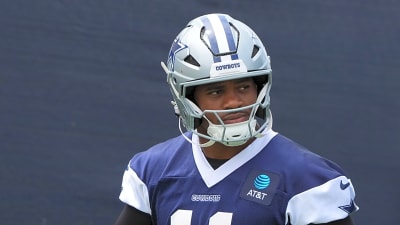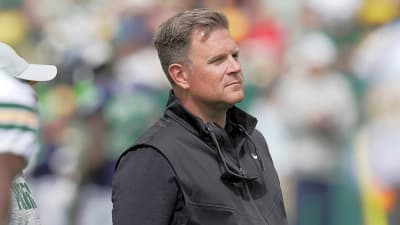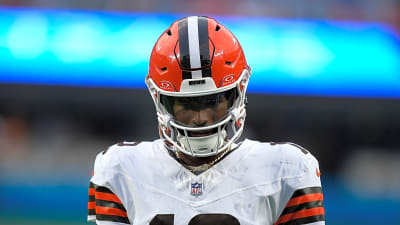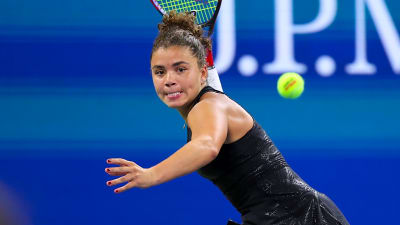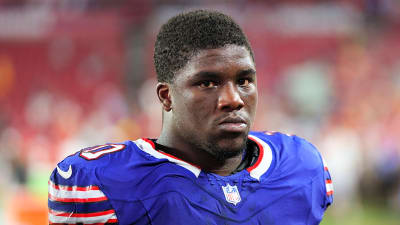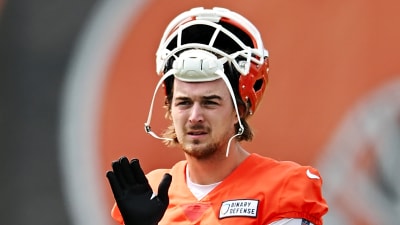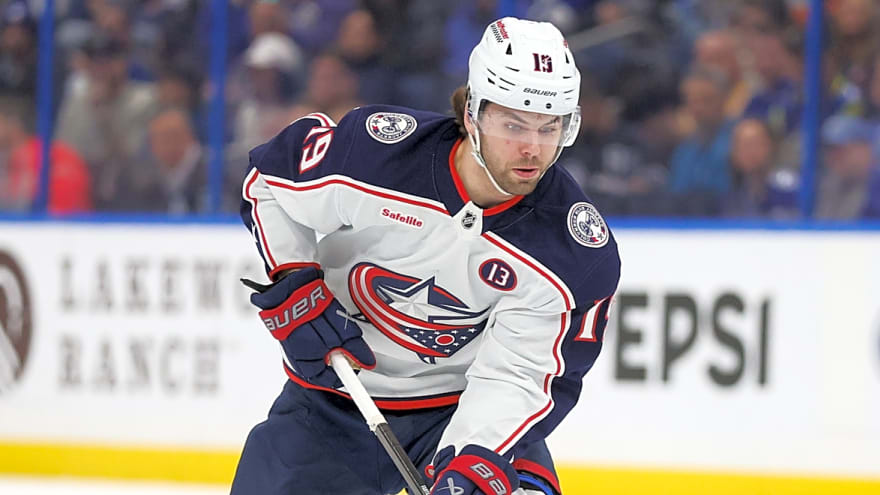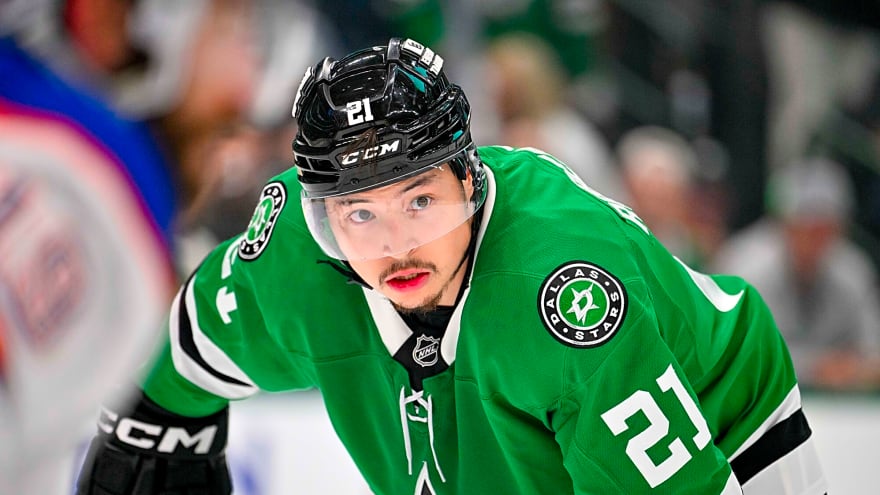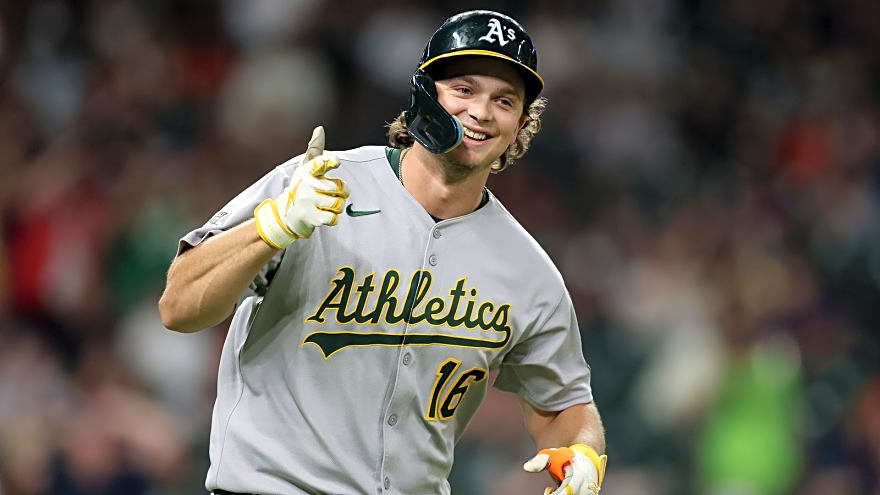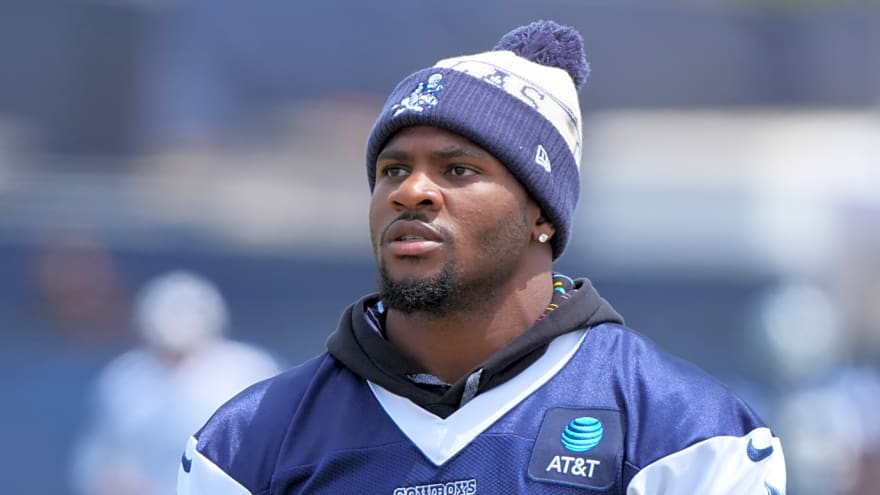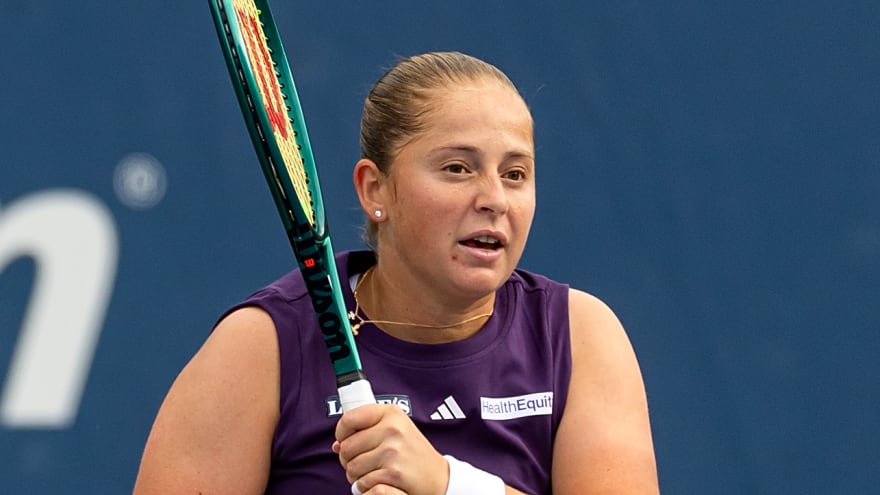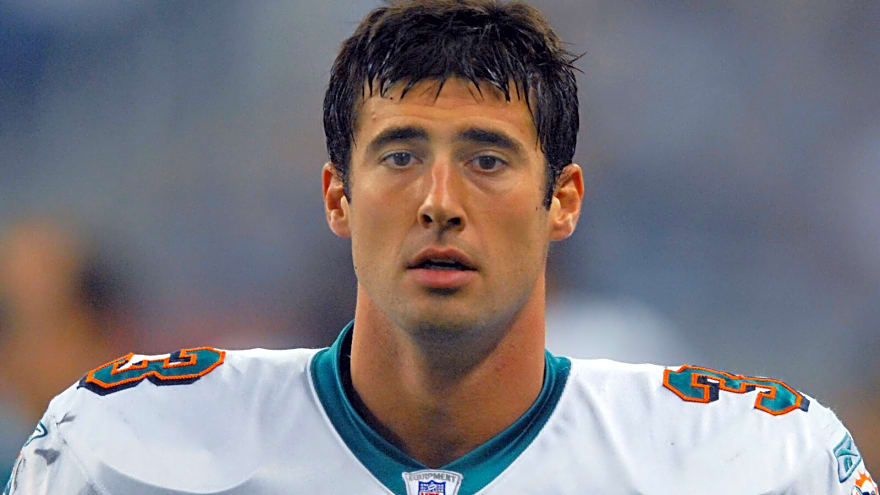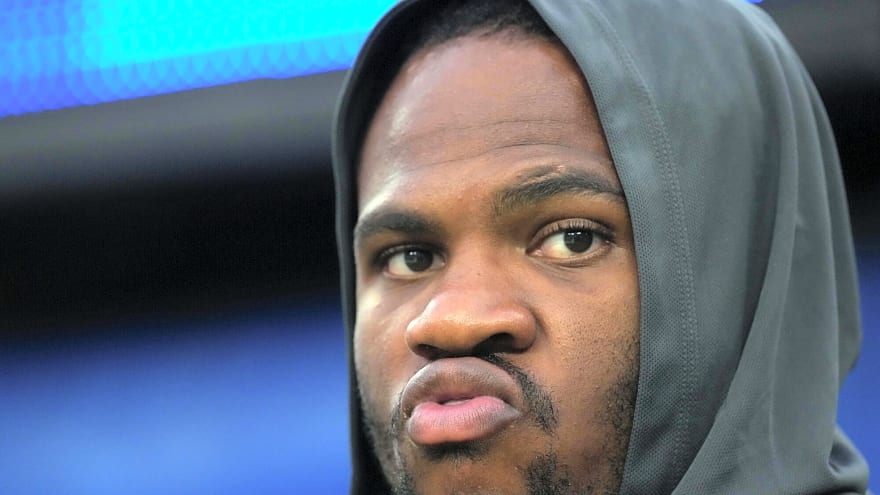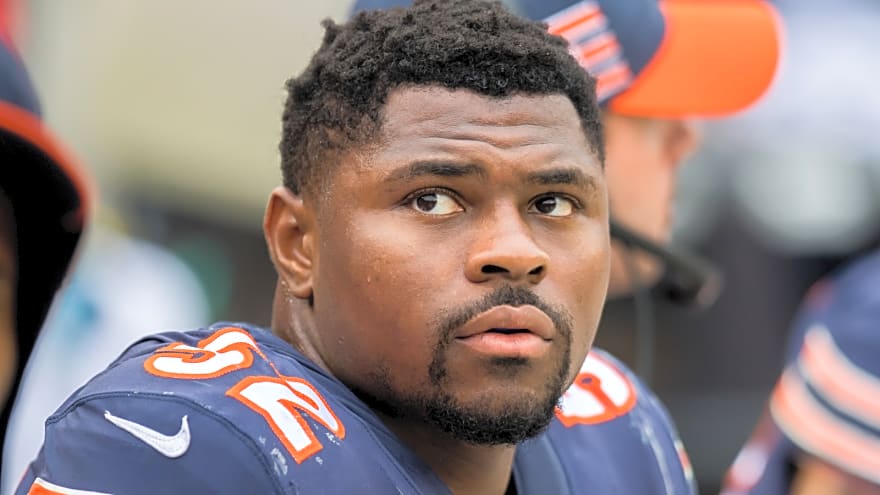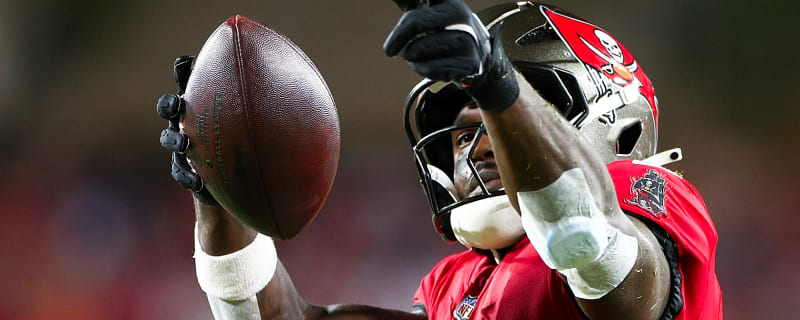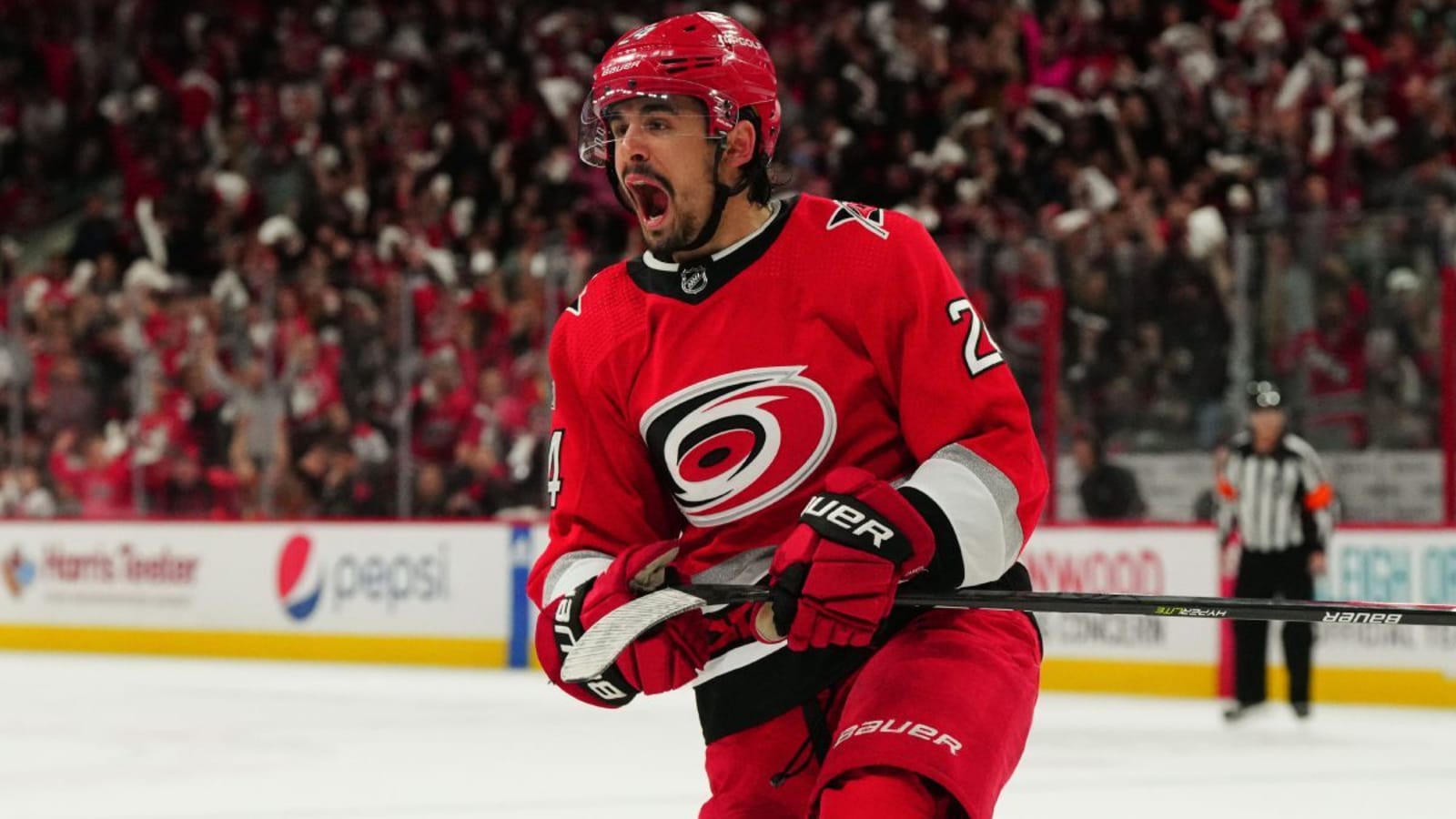
The Carolina Hurricanes and restricted free agent Seth Jarvis have agreed to terms on a new eight-year, $63.2 million contract, sources tell Daily Faceoff. It’s an important piece of business for the Canes, locking up the heartbeat of their team for the foreseeable future, but the way the contract is structured may be important business for the NHL’s other 31 clubs.
That’s because Jarvis’ new deal is set to become one of the first in NHL history to have a salary cap hit substantially lower than the typical average annual value because he was willing to defer salary.
Nearly every NHL contract in the salary cap era, since 2005, has been prescribed a simple cap hit: Take the total dollars ($63.2 million) and divide it by the length of the deal (eight years) and you arrive at $7.9 million per year on the team’s salary cap chart. With this deal, Jarvis will land on the Canes’ books at approximately $7.5 million per year, a savings of $400,000 each season.
No source was willing to divulge precisely how much money has been deferred, or in which year(s) of the deal the money is deferred, but there is a deferred signing bonus payment that is scheduled for July 1, 2032 – which is one day after the contract officially expires on June 30, 2032.
Because that payment is technically scheduled for Year 9 of the eight-year deal, there is no Year 9 cap charge for the Hurricanes, and the cap hit for the Hurricanes over the course of the eight-year deal is charged on what is actually paid out during that time.
Deferred payments have been allowed in the Collective Bargaining Agreement, but to this point, the Hurricanes are believed to be the first NHL team to cross this threshold in a meaningful way. Sources indicated the NHL’s Central Registry and the NHL Players’ Association have been briefed and signed off on the structure of this deal before terms were agreed upon; the deal is expected to be registered on Saturday.
In fact, the new eight-year deal for Hurricanes defenseman Jaccob Slavin was the first deal to be registered this summer with a deferred payment. But it wasn’t significant enough to alter the salary cap hit in a meaningful way to register on anyone’s radar: It’s been erroneously reported that Slavin’s eight-year deal has a $6.461 million cap hit, but it is actually going to be $6.396 million per year. It’s almost as if Slavin’s deal was Carolina’s trial balloon.
How do deferred payments work? Well, the first thing to know is they’re not free. This is an example of Hurricanes owner Tom Dundon, who has somehow received a reputation of being stingy, actually spending more over time to benefit his team in the shorter term. A smaller salary cap hit, theoretically, allows for more spending and thus a more competitive team if spent properly.
The NHL’s CBA calls for a time value of money discount calculation. It is easy to understand the value of money over time – we would all rather have $1 million today than $1 million three years from now. So, the NHL has a formula that estimates how much the time value of money is, based on the current interest rates, and adjusts for that. That way the $1 million that you deferred today for payment three years from now might only count on the books as if you received $850,000 today.
Of course, there is risk here. This type of contract structure requires understanding from Jarvis and his agent, Gerry Johannson of Edmonton-based The Sports Corportation, on a varying number of topics including investment vehicles, tax structures and elements, plus a healthy risk profile on things such as escrow rates, the possibility of a buyout or trade that could change every calculation. So, this was a mature conversation that evolved over the last two months to the point where everyone is comfortable, and Johannson and the NHLPA believe this is good for Jarvis – not just the Hurricanes. This deal was the brainchild of GM Eric Tulsky and his staff, which includes Darren Yorke, Aaron Schwartz and now Tyler Dellow, and there is risk for Carolina too, but it can be minimized or eliminated with returns on investment of the deferred money.
The larger question now is: Who will be the next NHL team to replicate this type of deferred contract? And how big of a salary cap discount will the NHL allow before this blurs the line of cap circumvention?
The Jarvis contract has the ability to be a precedent setter for the entire league. Deferred payments can exploit the salary cap hit the larger the payment and the longer it extends, and it isn’t difficult to conjure up a real-world example – especially for a player who is entering a third contract, has already put a significant amount of money in the bank, and has a competitive appetite to provide his team with more salary cap ammunition because he has an insatiable desire to win.
Take Hart Trophy winner Leon Draisaitl and the contract he is currently negotiating with the Edmonton Oilers. Sources indicate Draisaitl’s initial ask on a long-term deal was north of $14 million per year on average. Let’s call it $14.2 million for example and argument sake. That is a total of $113.6 million over eight years, which yes, would typically come with a salary cap charge of $14.2 million on the AAV.
What if Draisaitl was hypothetically willing to defer $33.6 million of that contract to be paid out over the 40 years after the deal expires? That would be approximately $840,000 per year from 2033 until 2073, and yes, we’re talking a Bobby Bonilla-type contract. That would pay Draisaitl $80 million over the first eight years of the deal, hypothetically making for a cap hit in the neighborhood of $10 million per year – or a discount of $4.2 million per year of the deal.
That isn’t exactly how the calculation or the math works, but the numbers are round and it’s easy to grasp and understand. Draisaitl has already earned north of $70 million in his career. To bring in another $80 million over the first eight years of the next deal makes him more than financially secure for future generations of Draisaitls – and the deferred $33.6 million, which is accruing interest the entire time, is not just gravy but also idiot-proof savings.
It’s also an easy example to illustrate why the Jarvis deal could open up a can of worms. How much is too much in the eyes of the NHL, the NHLPA, and the other 31 clubs?
Teams are always looking for an advantage – and deferred payments have been quietly whispered about all summer, but no one has pulled it off until now. Good on Seth Jarvis, Johannson and the Hurricanes. And Game On for everyone else.
More must-reads:
- Blue Jackets' extension talks with young star will have major impact on salary
- Jerry Jones again proves he shouldn't be making decisions for Cowboys
- The 'Most 1,000-rushing yard NFL seasons' quiz
Breaking News
Trending News
Customize Your Newsletter
 +
+
Get the latest news and rumors, customized to your favorite sports and teams. Emailed daily. Always free!
TODAY'S BEST

Depth: The Habs have the NHL’s second-worst line of centers, according to Travis Yost
Offensively, the Canadiens have a few certainties heading into next season. Some guys are “guaranteed” to be in the team’s top-9, and there are some logical names that come to mind. But there are also some uncertainties… and you’ll understand that I’m talking about the team’s center line. Nick Suzuki and Jake Evans are going to play center, that’s written in the sky, but what about the rest? Alex Newhook, Joe Veleno, Zachary Bolduc (?) and Oliver Kapanen (the latter could cause a surprise) can play center on a line… but when you look closely, it’s easy to see that the Habs don’t have much depth at center. And in the eyes of Travis Yost, who was on the Sick Podcast… it goes further: according to him, the Habs have the 2nd-worst center line in the entire National League, ahead of the Nashville Predators. That’s not ideal. [content-ads] It’s no secret. To win games, be dominant on the ice and make a run in the playoffs….good NHL clubs must have the luxury of a big line of centers. They’re the ones who control the game, and they’re often the centerpieces of a Stanley Cup contending team. Clearly, the Habs have a problem at the moment at this level, and that’s what’s worrying in a way. The Canadiens have high expectations after making the playoffs last year, but it may be difficult to compete with other clubs if they don’t improve at center before too long. That said, we saw the club make the playoffs last year with a line of centers “similar” to the one for next season. The club lost Christian Dvorak… but in the long term, this formula doesn’t work in the National League. Kent Hughes tried to find a second quality center to play in the top-6, but he didn’t succeed. As a result, the Habs have a pretty big hole at center… which could sink the team at any moment on the ice. [spacer title=’Overtime’] – Nice picture! – With good reason. – It’s going to get hot.
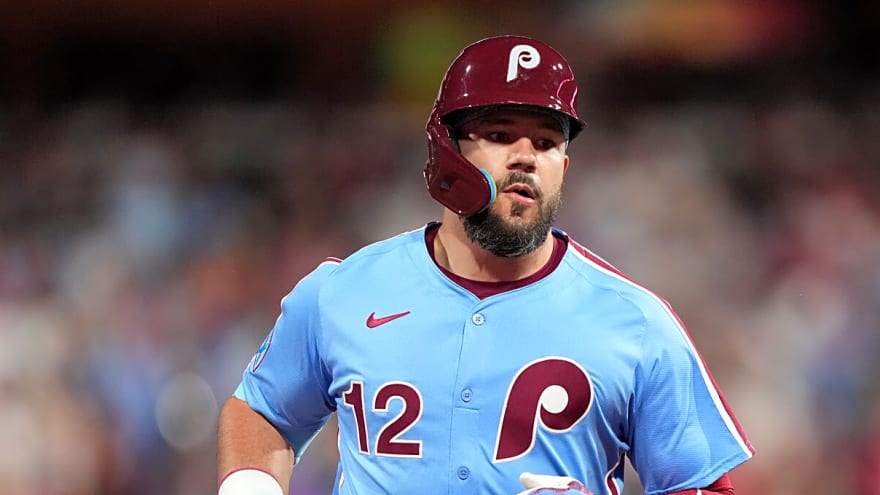
Phillies' Kyle Schwarber makes all kinds of MLB history vs. Braves
Kyle Schwarber made sure his Philadelphia Phillies bounced back after being swept by the New York Mets earlier this week. Schwarber went 4-for-6 with four home runs and nine RBI in Philadelphia's 19-4 win over the Atlanta Braves on Thursday. His first home run of the night came in the first inning, a solo shot for his 46th of the season. In the fourth inning, the three-time All-Star blasted his second home run of the night (47), this time a two-run knock. Schwarber’s third long ball came in the following frame, with his 48th being a three-run homer. Finally, in the seventh inning, Schwarber hit his fourth home run (49) of the night to right field to come within one dinger of 50 for the season. The 32-year-old made all kinds of history on Thursday against the Phillies’ division rival. He already surpassed his previous career high for home runs in a single season, but also became just the fourth player in franchise history to have four homers in a game and the first since Hall of Famer Mike Schmidt did so in 1976. Additionally, Schwarber is only the 21st player in MLB history to achieve this feat, and the fifth player all-time with at least four homers and nine RBI in a game. Plus, Schwarber joined the Athletics’ Nick Kurtz and Seattle Mariners’ Eugenio Suarez as the only players to have a four-homer game this season — the first time this has occurred. Clearly, Schwarber and the Phillies were anxious to get out of Queens and return to Philadelphia. The Phillies’ offense scored just eight runs across the three-game set against the Mets. They scored 19 runs off the Braves’ pitching at Citizens Bank Park. Schwarber received “MVP” chants from Phillies fans on Thursday, and rightfully so. He’s on his way to breaking Ryan Howard’s previous franchise record of 58 home runs in a season, which earned him the 2006 National League MVP.
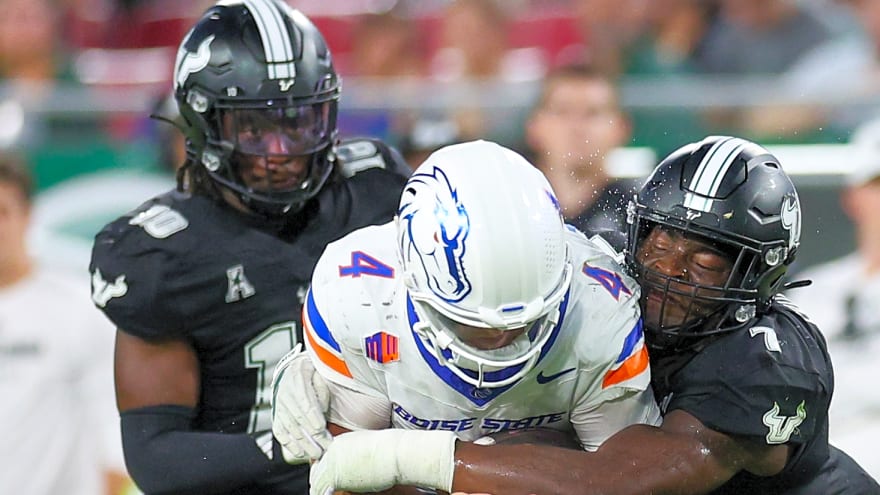
Post-Ashton Jeanty era gets off to brutal start for No. 25 Boise State
There had to be at least some expectation that the Boise State Broncos were going to take a small step backwards in 2025. They probably just did not expect it to happen so soon in the season, and so emphatically. The No. 25 ranked Broncos were absolutely humiliated on Thursday night, losing 34-7 to an unranked South Florida team that was just 7-6 a year ago. It was a rude awakening for what might be ahead for Boise State following the departure of Heisman Trophy runner-up Ashton Jeanty. Jeanty's historic season helped carry the Broncos to an 12-1 regular season, with the only regular season loss being a three-point defeat to Oregon early in the season. They ended up in the College Football Playoff where they lost their first game to Penn State. But with Jeanty on to the NFL (a first-round pick by the Las Vegas Raiders) there was always going to be a huge hole for them to replace. Not only in terms of production and skill, but also in their identity. They had none of that power-running identity on Thursday. Not only did they allow 34 consecutive points to South Florida, but the Broncos also managed to rush for only 122 yards on 38 carries, coming out to just 3.2 yards per attempt. They averaged 6.1 yards per carry in 2024, tied for the second-highest mark in college football. On one hand, losing an early season game isn't the end of the world, especially in the era of expanded playoffs. Boise State could still run the table the rest of the way with a very manageable schedule and play its way back into playoff contention. It's also not uncommon for teams to struggle early in the season. There is no preseason in college football and everybody is just coming in cold right into real games. Sometimes teams take a while to get moving. But this is not a particularly good South Florida team, and for Boise State to come out so flat and be so uncompetitive in the opener is a bad sign for what might be ahead.

Keegan Bradley opens up on the PGA Tour winner he hated leaving off the Ryder Cup team
Keegan Bradley has finalised his Ryder Cup selections, naming the six players who will join the automatic qualifiers for Team USA. The team is now set after Bradley announced his picks for Bethpage Black, and he did not include himself in the squad. Despite a solid PGA Tour year, the 39-year-old golfer finished 11th in the rankings, just missing automatic qualification. He therefore chose to focus on his captaincy duties rather than chasing a playing spot. Justin Thomas and Collin Morikawa also missed out on automatic qualification but were later added by Bradley. Keegan Bradley admits he found it tough to leave Maverick McNealy out of his Ryder Cup squad Maverick McNealy was one of the players who missed out on a spot, and Bradley addressed that shortly after announcing his selections. He said: “Very, very difficult call to Mav. Incredible kid, played well all year long. I was very upfront with the guys that hadn’t made the team. “You really have to make the team on points in your first team, it’s really difficult to get a pick in your first team event. “I made that very clear to him and he still played great. I played with him a bunch of times this year and I was really impressed with his game. “I told him it’s okay to be angry, I left these calls really angry most times. You can use this as fuel. I said please be angry with me and make the next team. Make Brandt’s [Snedeker] Presidents Cup team. “I used it as fuel for most my career and I advised Mav to do the same thing because he made a great run at making this team and ultimately that was a really tough decision.” Maverick McNealy’s PGA Tour form in 2025 McNealy had the Ryder Cup on his radar throughout the season, but fell just short of earning a place under Bradley. The 29-year-old has one PGA Tour win to his name, having taken The RSM Classic title in 2024. He nearly added another this year, finishing runner-up at The Genesis Invitational. Ludvig Aberg ended up taking the win at Torrey Pines, edging out McNealy by just one stroke. McNealy’s exclusion from this year’s team, as Bradley pointed out, could motivate him to strive for future selections. Next month, the Ryder Cup returns to New York, with the hosts looking to reclaim the trophy from Team Europe. McNealy finished 10th in American qualification, ahead of Bradley.

